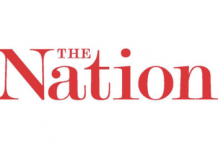by Isabelle L.
Papillon (Haiti Liberte)
Papillon (Haiti Liberte)
It was to cries
of “Long Live Dessalines, Down with Hollande!” that Haitian
protesters welcomed French President François Hollande during his visit to
Haiti on May 12, the last stop of several he made in the Caribbean over the
past week.
of “Long Live Dessalines, Down with Hollande!” that Haitian
protesters welcomed French President François Hollande during his visit to
Haiti on May 12, the last stop of several he made in the Caribbean over the
past week.
Haitian President Michel Martelly
and his de facto Prime Minister Evans Paul greeted President Hollande with a
red carpet at the Port-au-Prince airport. The French delegation was made up of
some 300 people: members of the government and Parliament, representatives of
five French overseas territories, university officials, cultural figures,
businessmen, and 60 journalists.
and his de facto Prime Minister Evans Paul greeted President Hollande with a
red carpet at the Port-au-Prince airport. The French delegation was made up of
some 300 people: members of the government and Parliament, representatives of
five French overseas territories, university officials, cultural figures,
businessmen, and 60 journalists.
Hollande’s visit to Haiti of less
than 24 hours was his first and reflected the domination which France still
exerts over its former colony. The visit comes five years after former French
President Nicolas Sarkozy’s visit to Haiti shortly after the Jan. 12, 2010
earthquake.
than 24 hours was his first and reflected the domination which France still
exerts over its former colony. The visit comes five years after former French
President Nicolas Sarkozy’s visit to Haiti shortly after the Jan. 12, 2010
earthquake.
Thousands of Haitian demonstrators
seized the occasion to once again demand reparations for slavery and
colonialism as well as restitution of the debt of 90 million French francs
which Haiti paid France from 1825 to 1947. In 2001, France officially
recognized that slavery was a crime against humanity. Calling on France to
concretely remedy this crime, in 2003, then President Jean-Bertrand Aristide’s
government asked France to repay Haiti’s “independence debt,” with interest,
which Haiti assessed at about $21.6 billion. France scoffed at the request, the
first by any former colony, and joined with Washington to foment the Feb. 29,
2004 coup against Aristide.
seized the occasion to once again demand reparations for slavery and
colonialism as well as restitution of the debt of 90 million French francs
which Haiti paid France from 1825 to 1947. In 2001, France officially
recognized that slavery was a crime against humanity. Calling on France to
concretely remedy this crime, in 2003, then President Jean-Bertrand Aristide’s
government asked France to repay Haiti’s “independence debt,” with interest,
which Haiti assessed at about $21.6 billion. France scoffed at the request, the
first by any former colony, and joined with Washington to foment the Feb. 29,
2004 coup against Aristide.
In 2006, former French President
Jacques Chirac formally decreed May 10 the date to memorialize the evils of the
slave trade.
Jacques Chirac formally decreed May 10 the date to memorialize the evils of the
slave trade.
On May 10, 2015, President Hollande
invited President Martelly and over 50 heads of state and government, as well
as the representatives of international institutions, to the inauguration the
world’s largest center commemorating slavery: the ACTE Memorial in
Pointe-à-Pitre, Guadeloupe.
invited President Martelly and over 50 heads of state and government, as well
as the representatives of international institutions, to the inauguration the
world’s largest center commemorating slavery: the ACTE Memorial in
Pointe-à-Pitre, Guadeloupe.
In his May 10 speech, Hollande
saluted Martelly’s presence representing the first nation to break slavery’s
chains by defeating French troops. “This memorial will tell the world that
the fight for human dignity is not over,” Hollande said.
saluted Martelly’s presence representing the first nation to break slavery’s
chains by defeating French troops. “This memorial will tell the world that
the fight for human dignity is not over,” Hollande said.
Then Hollande shocked the crowd when
he denounced the treaty to repay 150 million gold francs which French King
Charles X extorted from Haiti in 1825 as “the independence ransom.” (The
“ransom” was reduced to 90 million gold francs in 1893.) Hollande then
declared: “When I get to Haiti, I will in my turn pay the debt we have” to
Haiti.
he denounced the treaty to repay 150 million gold francs which French King
Charles X extorted from Haiti in 1825 as “the independence ransom.” (The
“ransom” was reduced to 90 million gold francs in 1893.) Hollande then
declared: “When I get to Haiti, I will in my turn pay the debt we have” to
Haiti.
The surprise declaration drew great
applause from the audience, which included many Caribbean leaders who have
recently been petitioning former colonial powers for reparations, following
Haiti’s lead. Unfortunately, Hollande’s remarks were disingenuous, as
Louis-Georges Tin, president of the Representative Council of Black
Associations (CRAN), explained in an open letter to the Haitian people.
applause from the audience, which included many Caribbean leaders who have
recently been petitioning former colonial powers for reparations, following
Haiti’s lead. Unfortunately, Hollande’s remarks were disingenuous, as
Louis-Georges Tin, president of the Representative Council of Black
Associations (CRAN), explained in an open letter to the Haitian people.
“The people
who gave birth to Dutty Boukman, Cécile Fatiman, Toussaint Louverture, and
Jean-Jacques Dessalines must now rise again,” Tin
wrote. “Haitians, François Hollande, the
French president, will be in your land on May 12. He will want to speak: let
him keep silent. It is for you to speak. As soon as he begins his speech, let a
chant begin silently, let it spread from one to the next, like spark that
gradually engulfs a savanna in flames.
who gave birth to Dutty Boukman, Cécile Fatiman, Toussaint Louverture, and
Jean-Jacques Dessalines must now rise again,” Tin
wrote. “Haitians, François Hollande, the
French president, will be in your land on May 12. He will want to speak: let
him keep silent. It is for you to speak. As soon as he begins his speech, let a
chant begin silently, let it spread from one to the next, like spark that
gradually engulfs a savanna in flames.
“And
let all say, and all roar ‘Restitution, Reparations!’ Until the President has
accepted your just request, continue unabated, ‘Restitution, Reparations!’
let all say, and all roar ‘Restitution, Reparations!’ Until the President has
accepted your just request, continue unabated, ‘Restitution, Reparations!’
“On
May 10, at the inauguration of the new memorial to slavery in Guadeloupe,
François Hollande gave an historic speech concerning reparations. He vowed to
return to Haiti the “ransom” imposed by France….
May 10, at the inauguration of the new memorial to slavery in Guadeloupe,
François Hollande gave an historic speech concerning reparations. He vowed to
return to Haiti the “ransom” imposed by France….
“But
hours later, a press release from the French president’s entourage to the
national and international press claimed that there was a misunderstanding,
that the remarks of President Hollande referred only to a ‘moral debt’ and not
a financial one, as some had understood.
hours later, a press release from the French president’s entourage to the
national and international press claimed that there was a misunderstanding,
that the remarks of President Hollande referred only to a ‘moral debt’ and not
a financial one, as some had understood.
“Haitians,
they are laughing at you. This reversal is an unbearable insult made to you,
which is made to us. Because everyone heard the words of Mr. Hollande, who
spoke before several African and Caribbean heads of state. Haitians, that money
was stolen from you. Do not let France rob you again. It is for you to say it
loud and clear. We are not far from victory. As soon as he begins his speech,
let Haiti’s voices gradually rise up, along with the voices of the ancestors
and all say, all roar: ‘Restitution, Reparations!’”
they are laughing at you. This reversal is an unbearable insult made to you,
which is made to us. Because everyone heard the words of Mr. Hollande, who
spoke before several African and Caribbean heads of state. Haitians, that money
was stolen from you. Do not let France rob you again. It is for you to say it
loud and clear. We are not far from victory. As soon as he begins his speech,
let Haiti’s voices gradually rise up, along with the voices of the ancestors
and all say, all roar: ‘Restitution, Reparations!’”
President Martelly certainly did not
go this far. He did not in his speech remind Hollande that the “independence
debt” is money stolen from Haiti and that France must repay it at all costs.
Instead, he did a kind of arrogant begging. He condemned the debt as
destructive, imposed on Haiti to compensate the former colonists, with a view
to hobbling the new state born on Jan. 1, 1804. “How many countries could
feel themselves free in such an adverse and unfavorable situation?”
Martelly asked in a round-about way.
go this far. He did not in his speech remind Hollande that the “independence
debt” is money stolen from Haiti and that France must repay it at all costs.
Instead, he did a kind of arrogant begging. He condemned the debt as
destructive, imposed on Haiti to compensate the former colonists, with a view
to hobbling the new state born on Jan. 1, 1804. “How many countries could
feel themselves free in such an adverse and unfavorable situation?”
Martelly asked in a round-about way.
Then, instead of demanding
restitution and reparations for Haiti, President Martelly began to throw
flowers to Hollande, claiming, quite ironically, that French aid now “allows
generations of young people in Haiti access to education, which is worth much
more than whatever number you put on the debt,” a thinly-veiled dig at
Aristide’s 2003 demand.
restitution and reparations for Haiti, President Martelly began to throw
flowers to Hollande, claiming, quite ironically, that French aid now “allows
generations of young people in Haiti access to education, which is worth much
more than whatever number you put on the debt,” a thinly-veiled dig at
Aristide’s 2003 demand.
Claiming that the “Haitian
youth is now unprepared to face its future,” Martelly servilely pleaded
with Hollande for “a Marshall plan for education in Haiti.”
youth is now unprepared to face its future,” Martelly servilely pleaded
with Hollande for “a Marshall plan for education in Haiti.”
Hollande so greatly appreciated
Martelly’s approach that he simply replied:”We cannot change history, but
we can change the future by enabling young Haitians to have access to
knowledge, know-how, and success; this is our duty.”
Martelly’s approach that he simply replied:”We cannot change history, but
we can change the future by enabling young Haitians to have access to
knowledge, know-how, and success; this is our duty.”
As usual with Martelly, nothing is
put as a political demand but rather as a chance to “make money.”
put as a political demand but rather as a chance to “make money.”
“Haiti wants the creation of a
binational commission to encourage French and European entrepreneurs to come
explore the many existing business opportunities in the country in areas where
their expertise and comparative advantage are tested: water, electricity,
sanitation, infrastructure, agro-industry, etcetera,” Martelly said.
binational commission to encourage French and European entrepreneurs to come
explore the many existing business opportunities in the country in areas where
their expertise and comparative advantage are tested: water, electricity,
sanitation, infrastructure, agro-industry, etcetera,” Martelly said.
Meanwhile, thousands of
demonstrators, particularly popular organization militants, protested on the
Champ de Mars, demanding restitution and reparations. University students
dressed as yoked-together slaves and carried anti-Hollande posters. The
demonstrators also denounced that Hollande paid tribute to Toussaint
Louverture, the precursor of independence who died in a French prison in April
1803, while General Jean-Jacques Dessalines, the father of the nation, was
ignored. On some of the many placards, one could read: “Long live
restitution, long live reparations, down with occupation,” a reference to
the continuing United Nations force – MINUSTAH – deployed in Haiti since 2004.
demonstrators, particularly popular organization militants, protested on the
Champ de Mars, demanding restitution and reparations. University students
dressed as yoked-together slaves and carried anti-Hollande posters. The
demonstrators also denounced that Hollande paid tribute to Toussaint
Louverture, the precursor of independence who died in a French prison in April
1803, while General Jean-Jacques Dessalines, the father of the nation, was
ignored. On some of the many placards, one could read: “Long live
restitution, long live reparations, down with occupation,” a reference to
the continuing United Nations force – MINUSTAH – deployed in Haiti since 2004.
Around 10:30 am, former senator and
current presidential candidate Moise Jean-Charles laid a wreath at Dessalines’
statue, but the police intervened with heavy gunfire and a water cannon to
disperse the crowd before the French president’s arrival.
current presidential candidate Moise Jean-Charles laid a wreath at Dessalines’
statue, but the police intervened with heavy gunfire and a water cannon to
disperse the crowd before the French president’s arrival.
In short, the Haitian people
continue to make their demand for restitution and reparations to President
Hollande, just as they did to Sarkozy in 2010.
continue to make their demand for restitution and reparations to President
Hollande, just as they did to Sarkozy in 2010.





